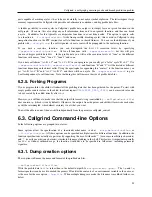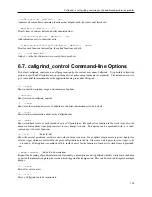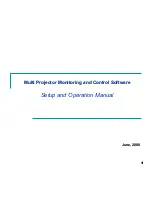
Callgrind: a call-graph generating cache and branch prediction profiler
--dump-line=<no|yes> [default:
yes]
This specifies that event counting should be performed at source line granularity. This allows source annotation for
sources which are compiled with debug information (
-g
).
--dump-instr=<no|yes> [default:
no]
This specifies that event counting should be performed at per-instruction granularity. This allows for assembly code
annotation. Currently the results can only be displayed by KCachegrind.
--compress-strings=<no|yes> [default:
yes]
This option influences the output format of the profile data. It specifies whether strings (file and function names)
should be identified by numbers. This shrinks the file, but makes it more difficult for humans to read (which is not
recommended in any case).
--compress-pos=<no|yes> [default:
yes]
This option influences the output format of the profile data. It specifies whether numerical positions are always
specified as absolute values or are allowed to be relative to previous numbers. This shrinks the file size.
--combine-dumps=<no|yes> [default:
no]
When enabled, when multiple profile data parts are to be generated these parts are appended to the same output file.
Not recommended.
6.3.2. Activity options
These options specify when actions relating to event counts are to be executed. For interactive control use call-
grind_control.
--dump-every-bb=<count> [default:
0, never]
Dump profile data every
count
basic blocks. Whether a dump is needed is only checked when Valgrind’s internal
scheduler is run. Therefore, the minimum setting useful is about 100000. The count is a 64-bit value to make long
dump periods possible.
--dump-before=<function>
Dump when entering
function
.
--zero-before=<function>
Zero all costs when entering
function
.
--dump-after=<function>
Dump when leaving
function
.
6.3.3. Data collection options
These options specify when events are to be aggregated into event counts. Also see
Limiting range of event collection
.
99
















































